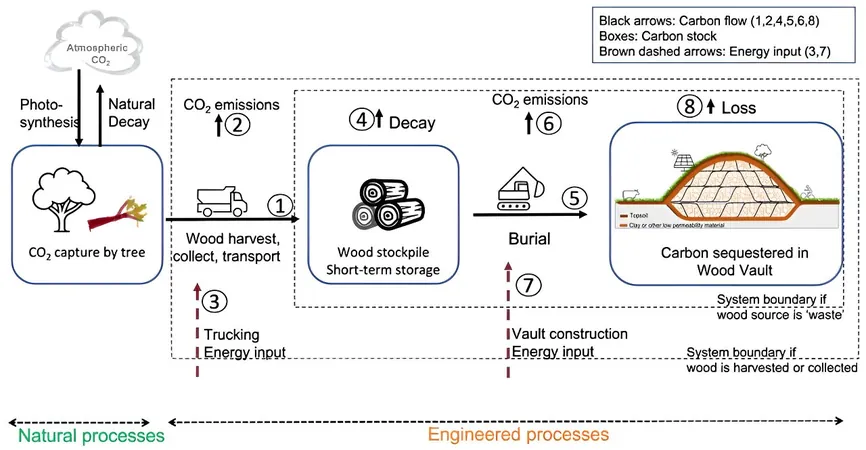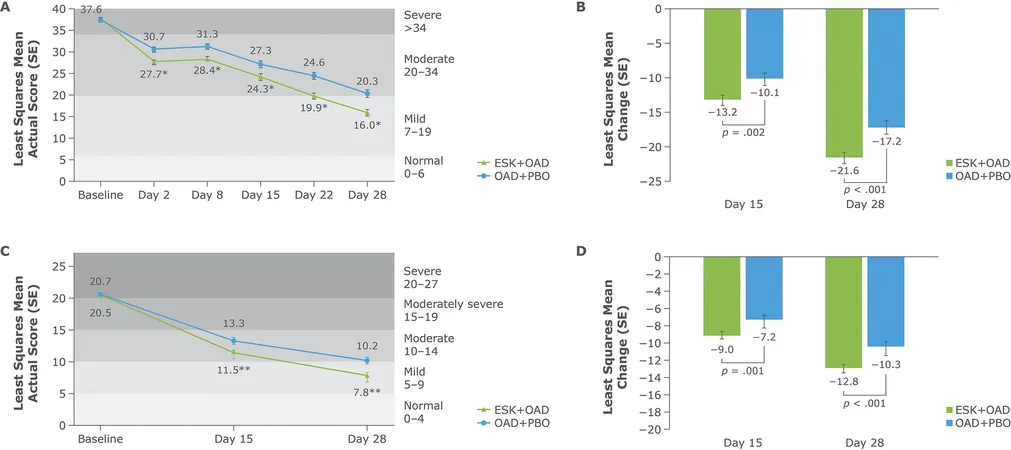
Unearthed Ancient Log Reveals Game-Changing Method for Cheap Carbon Capture
2024-09-27
In an exciting breakthrough, a diverse team of researchers from the University of Maryland and the Canadian Ministry of Agriculture, Fisheries, and Food has unveiled a revolutionary approach for carbon sequestration: harnessing the power of buried biomass. Their compelling findings were published in the prestigious journal Science.
As global temperatures continue to rise due to greenhouse gas emissions, primarily carbon dioxide, the urgency to devise effective solutions to combat climate change has never been greater. With many strategies proving prohibitively expensive, this new research shines a light on a potentially cost-effective method of carbon storage that could reshape our approach to environmental protection.
The team’s discovery centers around an ancient log, naturally preserved underneath a layer of clay for nearly 3,775 years in Canada. Remarkably, the log was found to contain an astounding 95% of the carbon it had absorbed during its lifetime, suggesting that burying biomass could effectively trap atmospheric carbon, preventing its release back into the environment.
Historically, plants naturally absorb carbon while growing, but when they die, this stored carbon is often re-released. However, this innovative study proposes an alternative: rather than allowing dead biomass to decay and emit carbon, we can bury it. The researchers concluded that clay, which is prevalent in many soils worldwide, could be a strategic medium for this carbon storage technique.
Their economic analysis revealed that the cost of sequestering carbon through burial is between $30 to $100 per ton—significantly cheaper than several existing methods that range from $100 to $300 per ton. This groundbreaking finding opens the door for a scalable, sustainable method of carbon capture.
Moreover, the researchers anticipate that if widely adopted, this method could enable the sequestration of an astonishing 10 gigatons of carbon annually. This could prove crucial for nations struggling to meet climate targets and mitigate the adverse effects of climate change.
As the world grapples with ecological challenges, this new evidence supports the notion that ancient wisdom can inform modern solutions — literally digging into the past to secure a healthier future for our planet. Stay tuned as this story develops and scientists worldwide explore the potential of biomass burial in the fight against climate change!





 Brasil (PT)
Brasil (PT)
 Canada (EN)
Canada (EN)
 Chile (ES)
Chile (ES)
 España (ES)
España (ES)
 France (FR)
France (FR)
 Hong Kong (EN)
Hong Kong (EN)
 Italia (IT)
Italia (IT)
 日本 (JA)
日本 (JA)
 Magyarország (HU)
Magyarország (HU)
 Norge (NO)
Norge (NO)
 Polska (PL)
Polska (PL)
 Schweiz (DE)
Schweiz (DE)
 Singapore (EN)
Singapore (EN)
 Sverige (SV)
Sverige (SV)
 Suomi (FI)
Suomi (FI)
 Türkiye (TR)
Türkiye (TR)